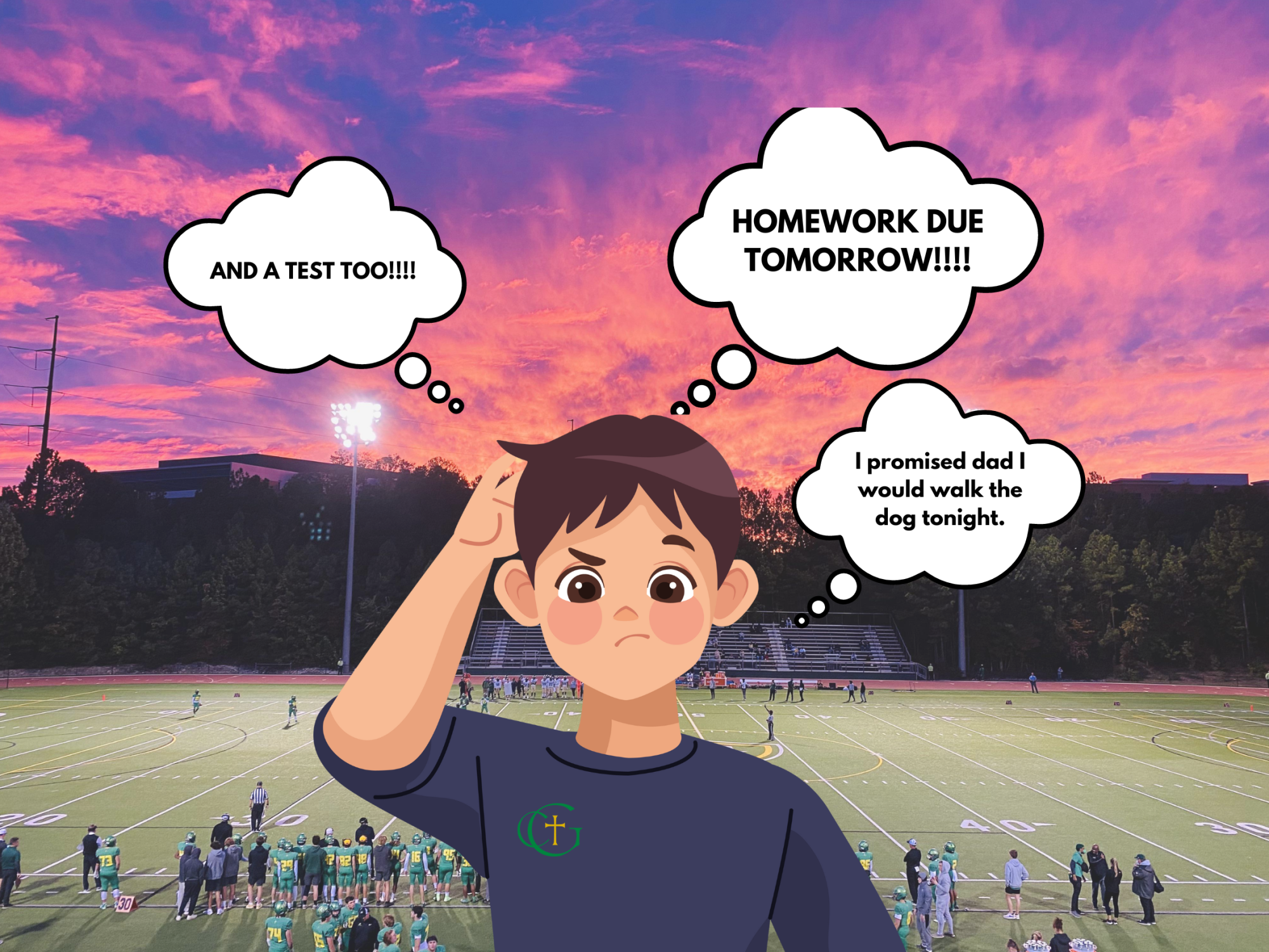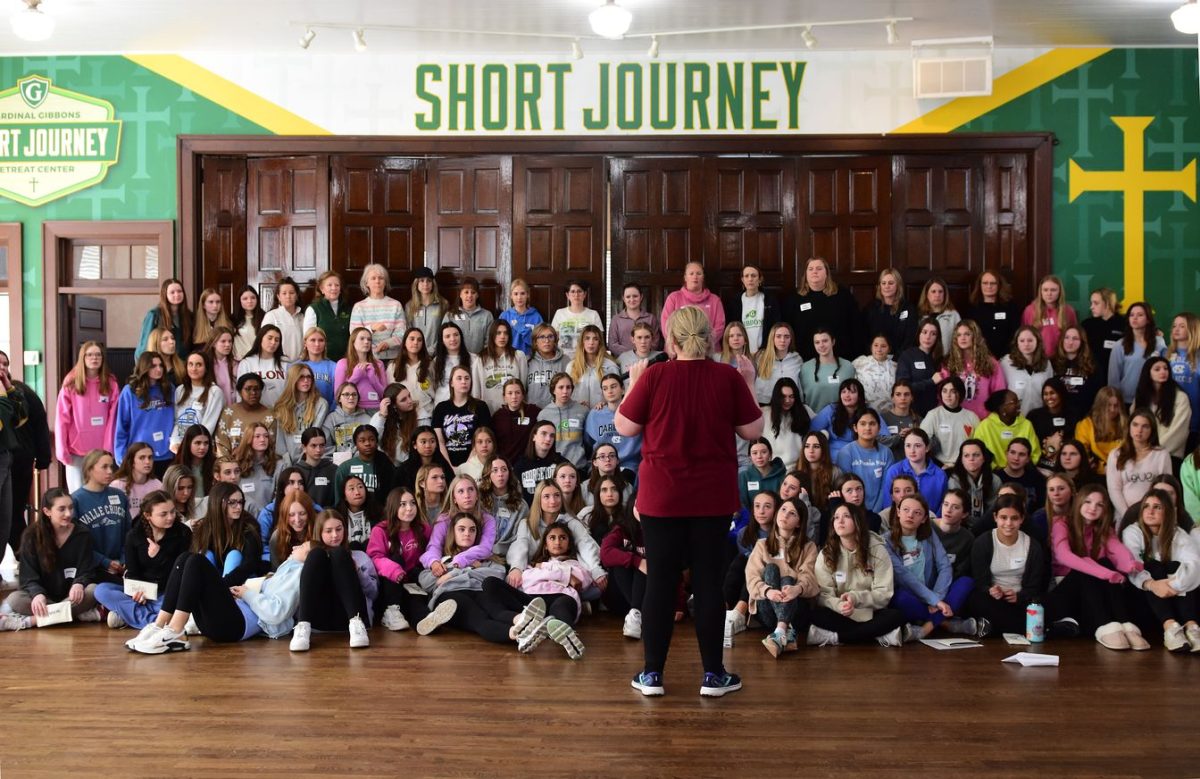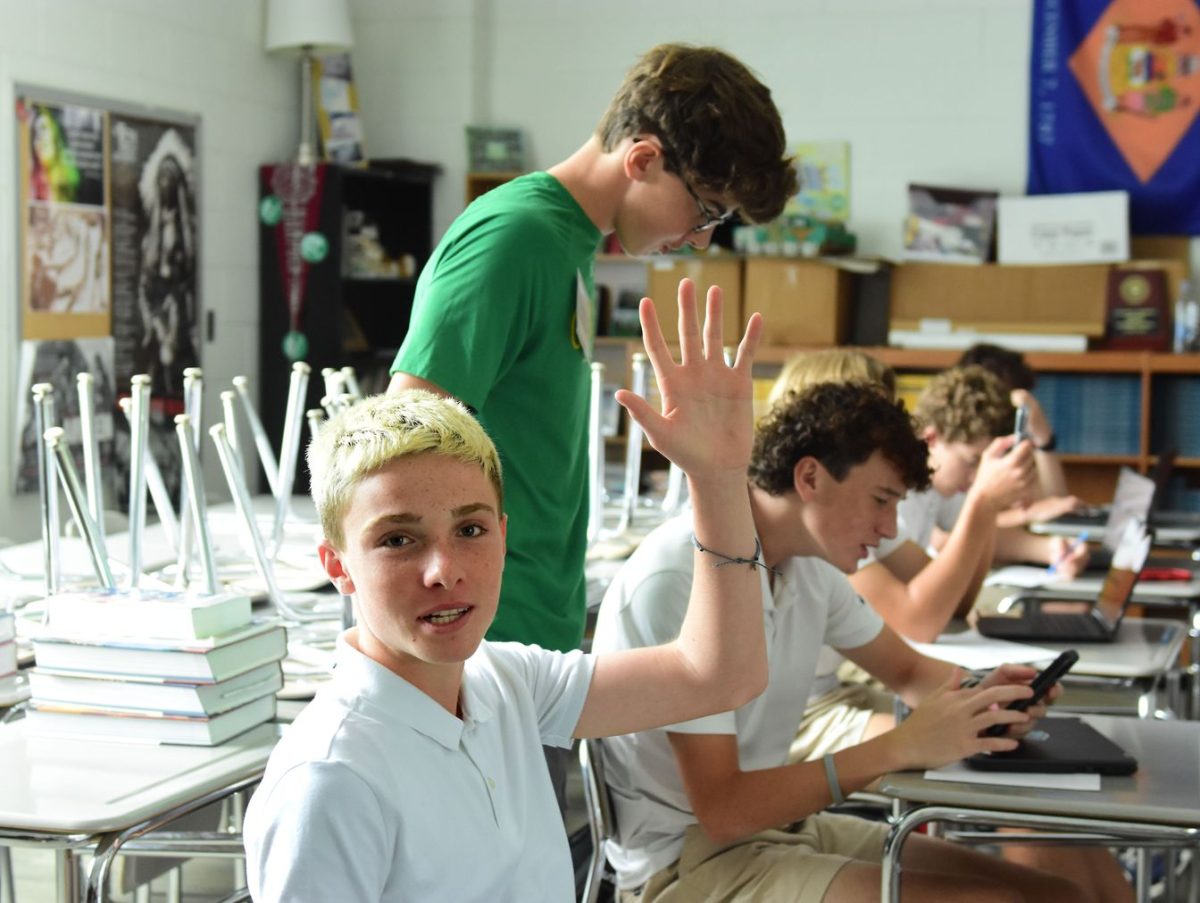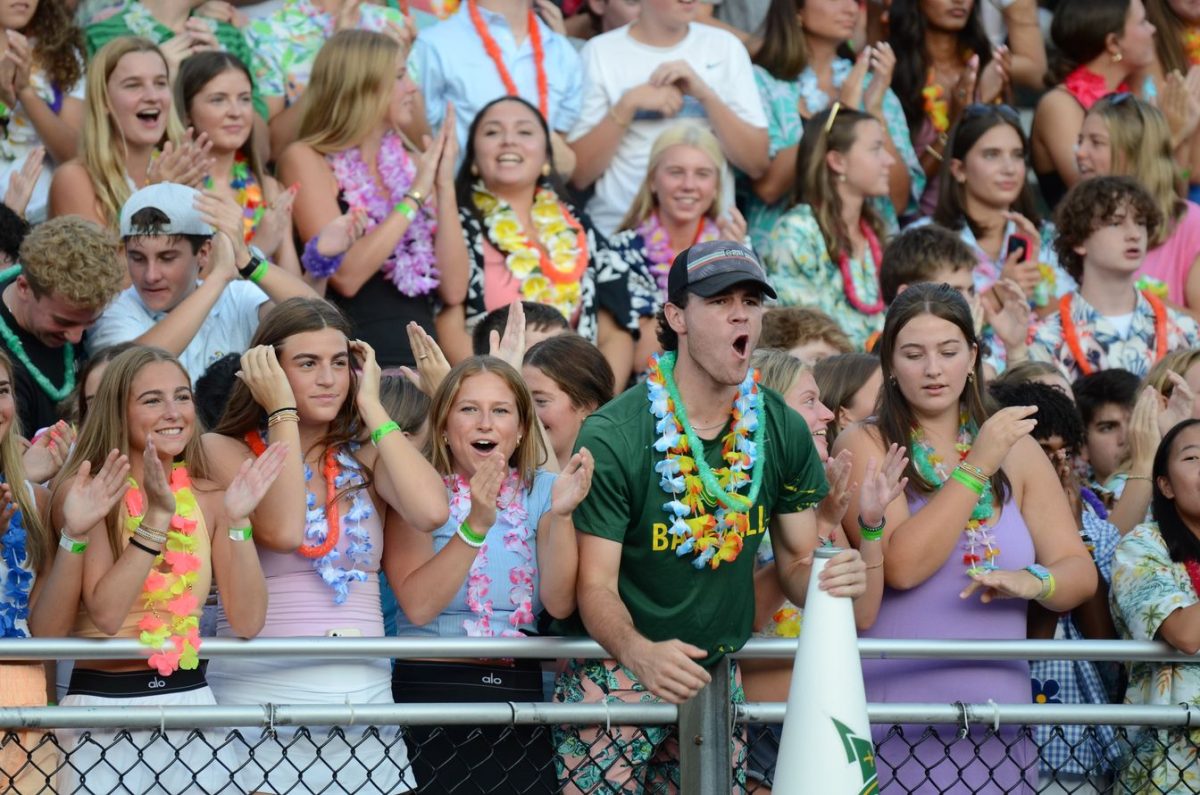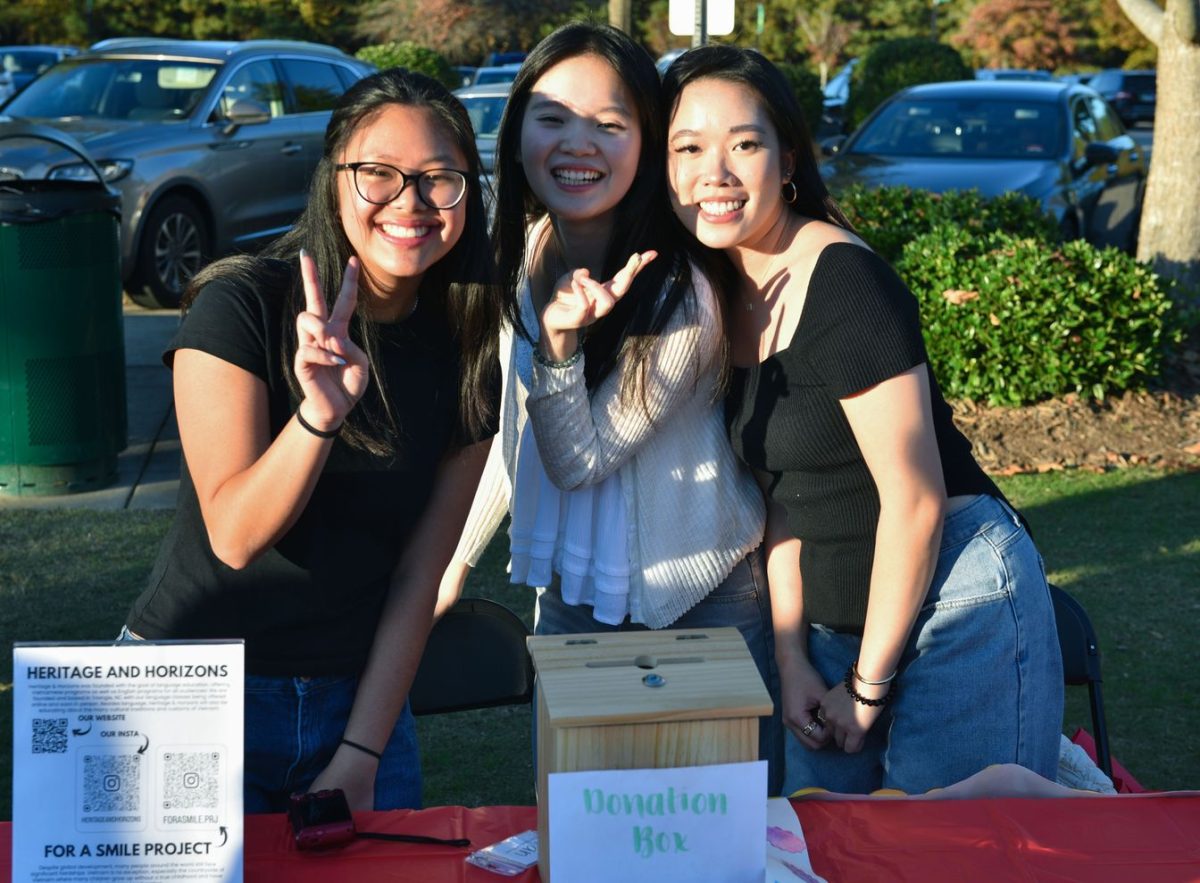High school sports teams often take up a lot of time for their matches, practices, and even school. What are the effects of leaving school early often to go to matches? Who do they affect the most? The teachers? The students?
How do the schools decide what time to start the games? Mr. Paul Smith is the assistant athletics director for our school and he is the person who often deals with this issue. As someone who helps create the start times, he says that the athletic department tries to make sure the students don’t miss as many classes as possible. They also want parents/family members to be able to attend, so sometimes the games are later.
A big reason for early start times and early dismissals is the travel time. If the school is farther away, the athletes will have to leave sooner. It is also dependent on what time the host team is able to accommodate the away team, since they may have an event going on at the host school. When the conference games begin, there is always a set time the matches/games will begin.
Certain schools also don’t have lights, which causes the start time to be sooner. All coaches tell their athletes that they should tell their teachers when they are going to be missing class.
Gibbons also tries to maintain the academic level at school, so starting last year, the “profile of a student-athlete” began. In this, there are certain standards athletes must maintain during the season and, if they cannot uphold these standards, they will lose certain privileges. For example, if a student’s GPA is between 2.0-2.5, the student will not be allowed to leave class early for a game which means that they can still attend, but will have to provide their own transportation.
So far, there have not been any observed effects on student-athletes’ participation or performance in their classes due to frequent early dismissals Mr. Smith said.
“The teachers here are really flexible, and as long as the student-athletes are proactive in making up work or catching up on things that they missed,” he said. “I know our teachers are really really good at being understanding.”
Leaving school early is a challenge for students too, especially for upperclassmen. They often take many AP courses which take more effort and time to study and complete assignments. Senior Megan Diamond (class of 2025) is a part of the varsity girls tennis team.
Practices during the season are around an hour and a half per day during the week. Tennis matches can be 3-4 hours long including both doubles and singles. Both soccer and softball matches can be around an hour and a half. During the season, athletes often get home late and have to leave class early with not as much time to finish homework, study, and have free time.
“As a senior, you’re taking a lot more AP classes, so you’re usually missing more content that they don’t give you as much leeway,” Diamond said. “In an AP class they expect you to figure out what you missed on your own and they don’t baby you through it.”
However, the pressure of not having as much time also helps her.
“It makes me realize that I need to, I can’t mess around, I can’t have any distractions. I come home from tennis and I have to go to bed,” Diamond said. “I often have to come in for office hours to make up things that I’ve missed or stay up later to catch up on everything, and text people in the class what we did, and ask them to send me notes.”
However, the students aren’t the only ones who find leaving school early difficult at times. Teachers also have to prepare classes for when they won’t be there, and make sure their students will understand the topic.
Mr. Andrew Tuttle, who is a math teacher and coach for the varsity girls and boys tennis teams and JV girls basketball, shared that last year he was lucky to have 4th and 8th-period flex, but this year he only has 4th-period flex which means he is going to be missing his 8th-period class when he has to leave early for games.
Mr. Tuttle says, “I think they’re more likely to respect that and take it seriously like a regular class whereas if it’s a teacher of another subject or especially if it’s an outside sub that’s not a regular teacher here. I know the students don’t normally give them as much respect as they deserve and normally say this is going to be an easy day and we don’t have to do anything. It definitely helps when I can have a math teacher sub for me.”
Thankfully, he has Dr. Ursula Karazin to be his substitute during 8th period, who is also one of the math teachers. Tuttle has to make sure his students understand the topic he is teaching. When he is not present, he makes sure his students have notes to copy to be able to teach themselves and ask their peers questions they may have.
He also highly encourages students to attend office hours. A positive he says about leaving school early is that he has some more time with his family. Mr. Tuttle says that he would have more matches starting at 4:00 or have more matches where they leave at 2:45 if he could, so they wouldn’t have to miss as much of the class.
Overall, there have not been many reported negative effects observed by students leaving early for games. By being an athlete on the team, you have to be ready to give something up since practices and matches will take a lot of time throughout the season.
While it might sound like there are many negative effects, there are also positive effects. Students can go home sooner, spend more time with their families, get their homework done, study for tests, and get to bed sooner than if they had started their game earlier.


